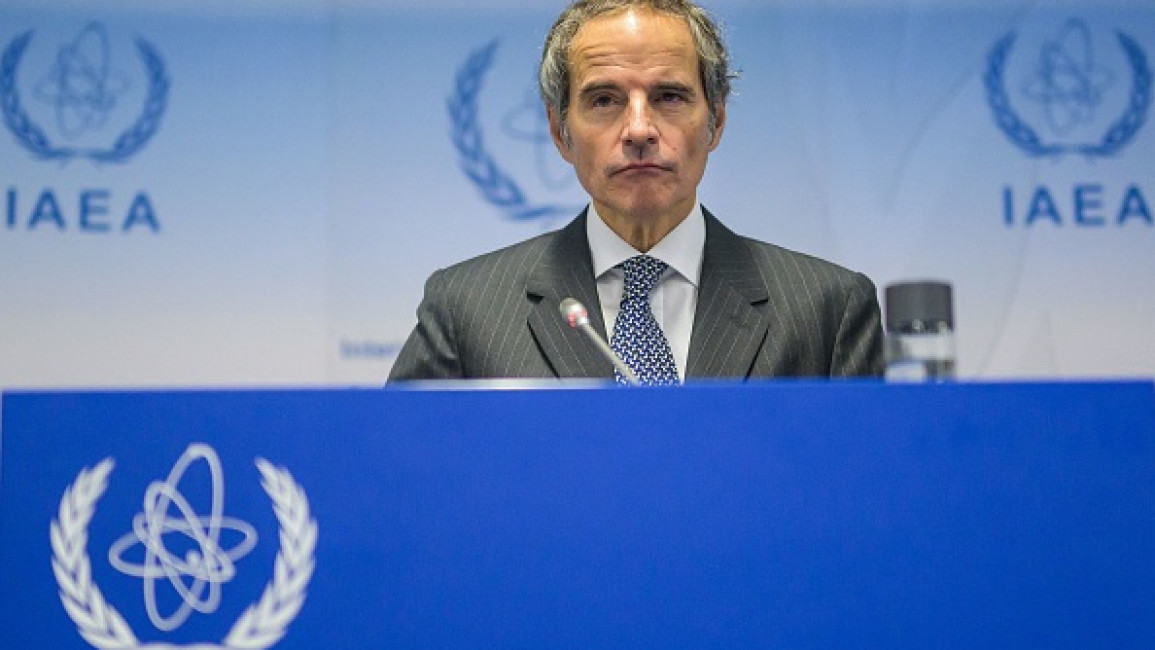Gaza war leaves West hesitant on Iran nuclear crackdown
Western powers have been reluctant to get tough on Tehran for fear of aggravating Middle East tensions as Iran grows its nuclear programme and reduces cooperation with the UN watchdog, diplomats say.
Worries of a wider regional conflict have sharpened since Israel began its bombardment and ground offensive of the Gaza strip on October 7, killing over 14,000 people, including almost 6000 children.
At this week's Board of Governors meeting of the International Atomic Energy Agency (IAEA) in Vienna, the United States and the so-called E3 group -- France, Germany and the United Kingdom -- condemned Tehran's lack of cooperation.
Despite stressing that Iran's actions had "pushed unprecedented boundaries", they held off on submitting a binding resolution.
"The picture is pretty bleak, but the fact at the moment is that there is no appetite to provoke a reaction in Iran in the context of the war in the Middle East," a senior diplomat summed up the current deadlock.
The 2015 deal curbing Iran's nuclear programme in exchange for sanctions relief started to unravel in 2018 when then US president Donald Trump unilaterally withdrew from it and reimposed sanctions.
Iran retaliated by stepping up its nuclear activities.
Efforts to revive the deal have been fruitless so far with European-led talks on hold since 2022.
Last week's confidential IAEA report showed that Iran now has enough uranium enriched up to 60 percent -- just short of weapons-grade -- to theoretically manufacture three bombs.
"That's quite an amount, especially if you don't use it for anything," said a diplomatic source.
Iran has repeatedly denied seeking nuclear weapons.
While Iran has been dragging its feet on reinstalling IAEA monitoring equipment it disconnected last year, it recently also withdrew the accreditation of several agency inspectors.
According to diplomats, eight inspectors from France and Germany have been affected by Tehran's decision.
Earlier this year, another IAEA inspector -- a Russian -- had been barred following the detection of a technical modification in centrifuges that had caused enrichment to peak at 84 percent.
Iran's barring of experienced agency inspectors has dealt a "very serious blow" to the IAEA's ability to monitor Tehran's nuclear programme, its head Rafael Grossi said on Wednesday.
Kelsey Davenport of the Arms Control Association think-tank said that while the reluctance of the IAEA Board of Governors to act is "understandable", it also constituted "a case of geopolitics trumping nonproliferation norms."
But viewing Iran "in a vacuum" and failing to hold it accountable over its advancing nuclear programme "sends the wrong signal to Tehran and other would-be proliferators," she cautioned.
Amid heightened tensions in the Middle East and Iran "on the threshold of nuclear weapons, there is an increasing risk that the United States or Israel will miscalculate Iranian nuclear intentions," she told AFP, calling on the Biden administration to break the deadlock.
In an effort to avoid stoking tensions in the region, the Western powers' reluctance to rebuke Iran has however "emboldened" Tehran, as it benefits from Moscow's "protection," said the senior diplomat.
The international community especially fears an extension of Israel's war on Gaza to the border between Lebanon and Israel, which has seen escalating exchanges of fire, primarily involving Israel and the Iran-backed Hezbollah, along with Palestinian groups.
"Given that we don't know how closely Tehran is linked to these groups", Western leaders take "as many precautions as possible," said Heloise Fayet, a researcher at the French Institute of International Relations.



